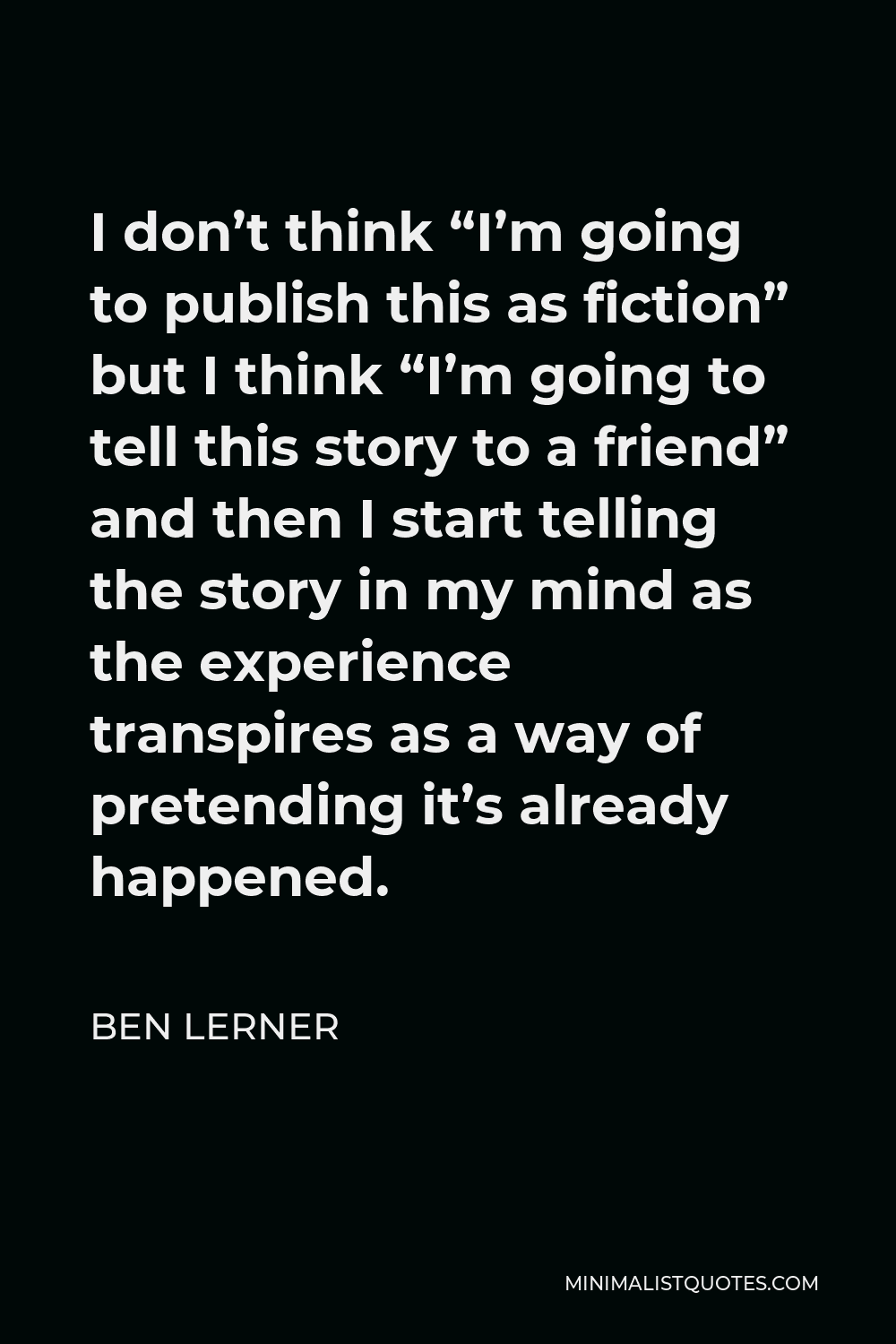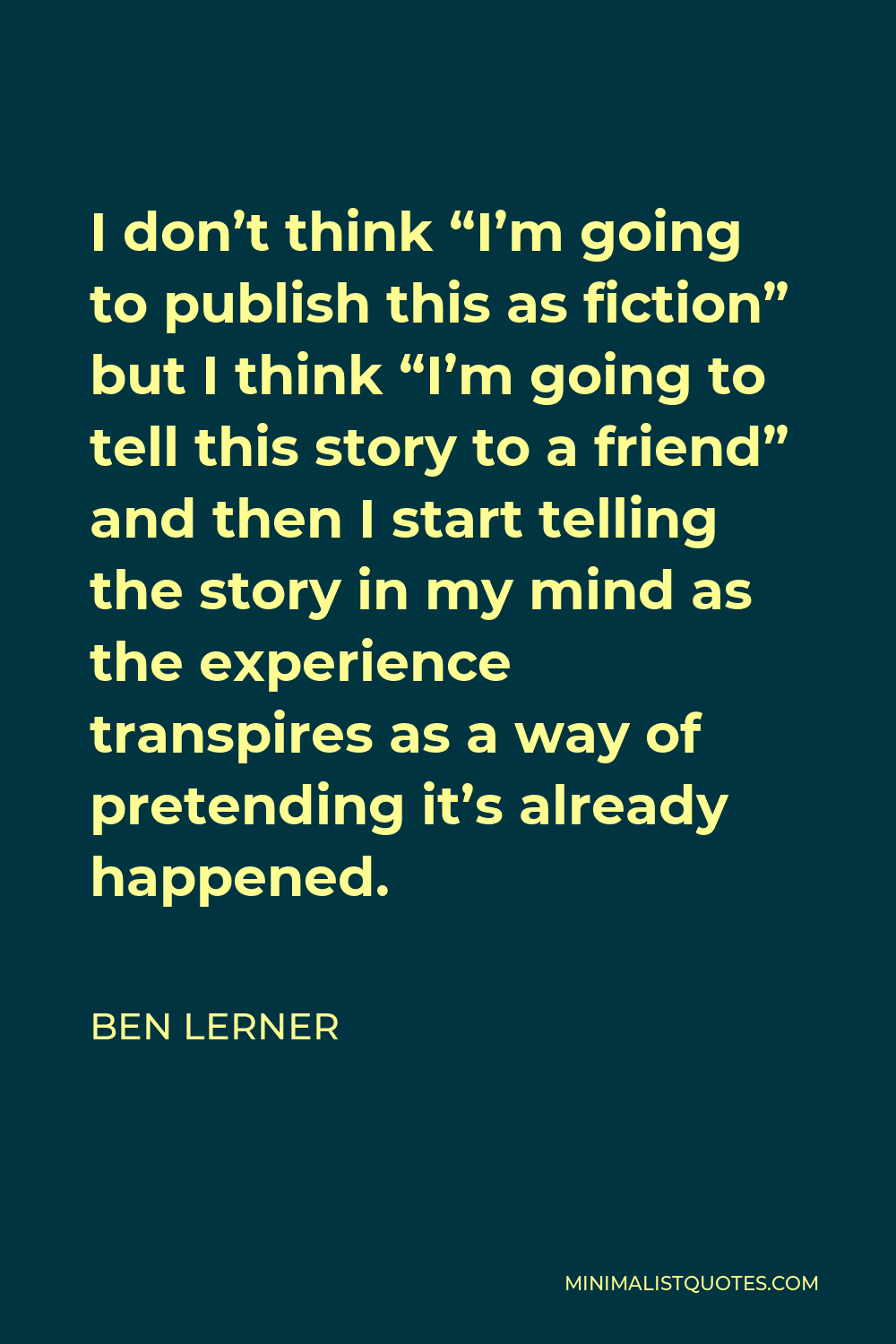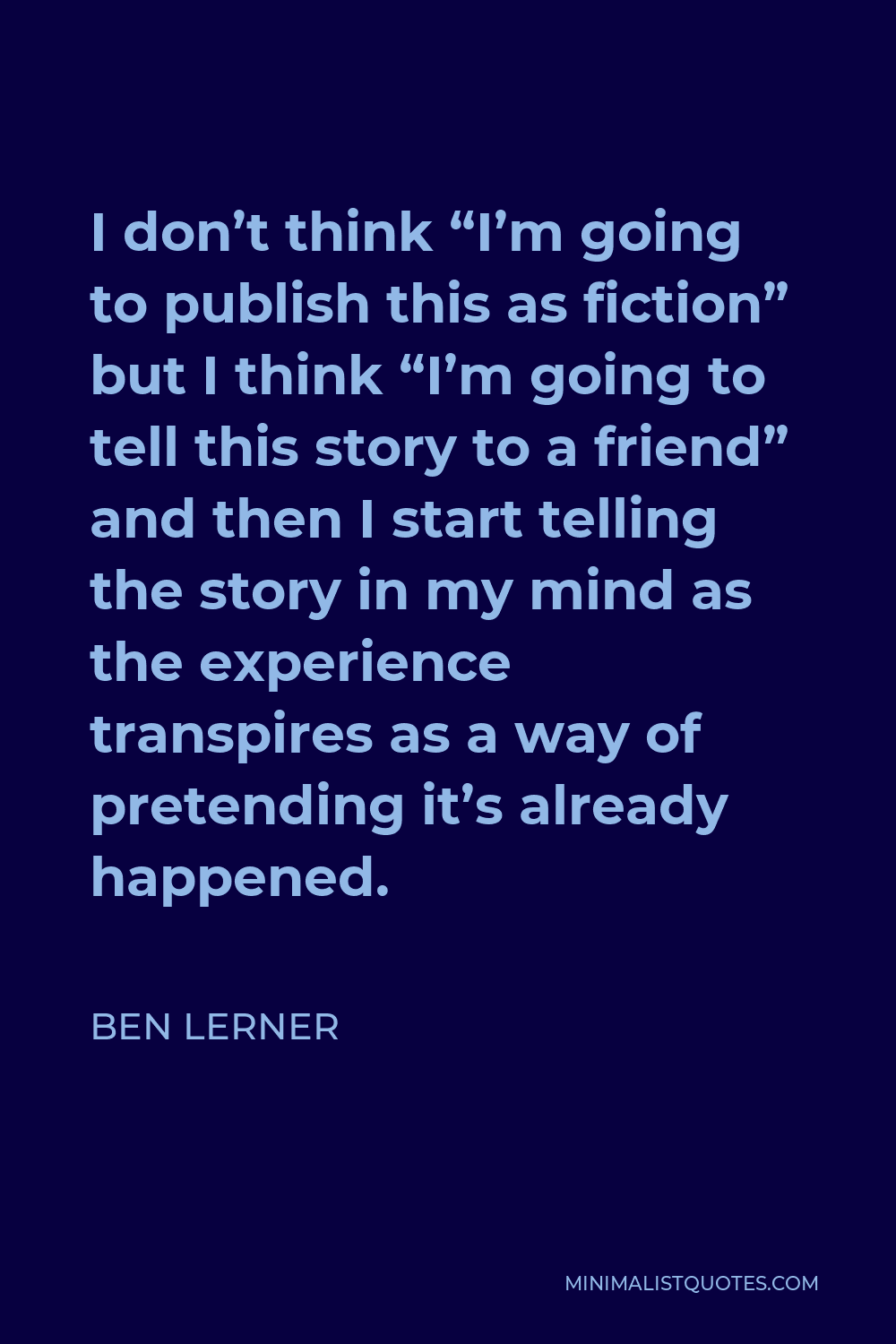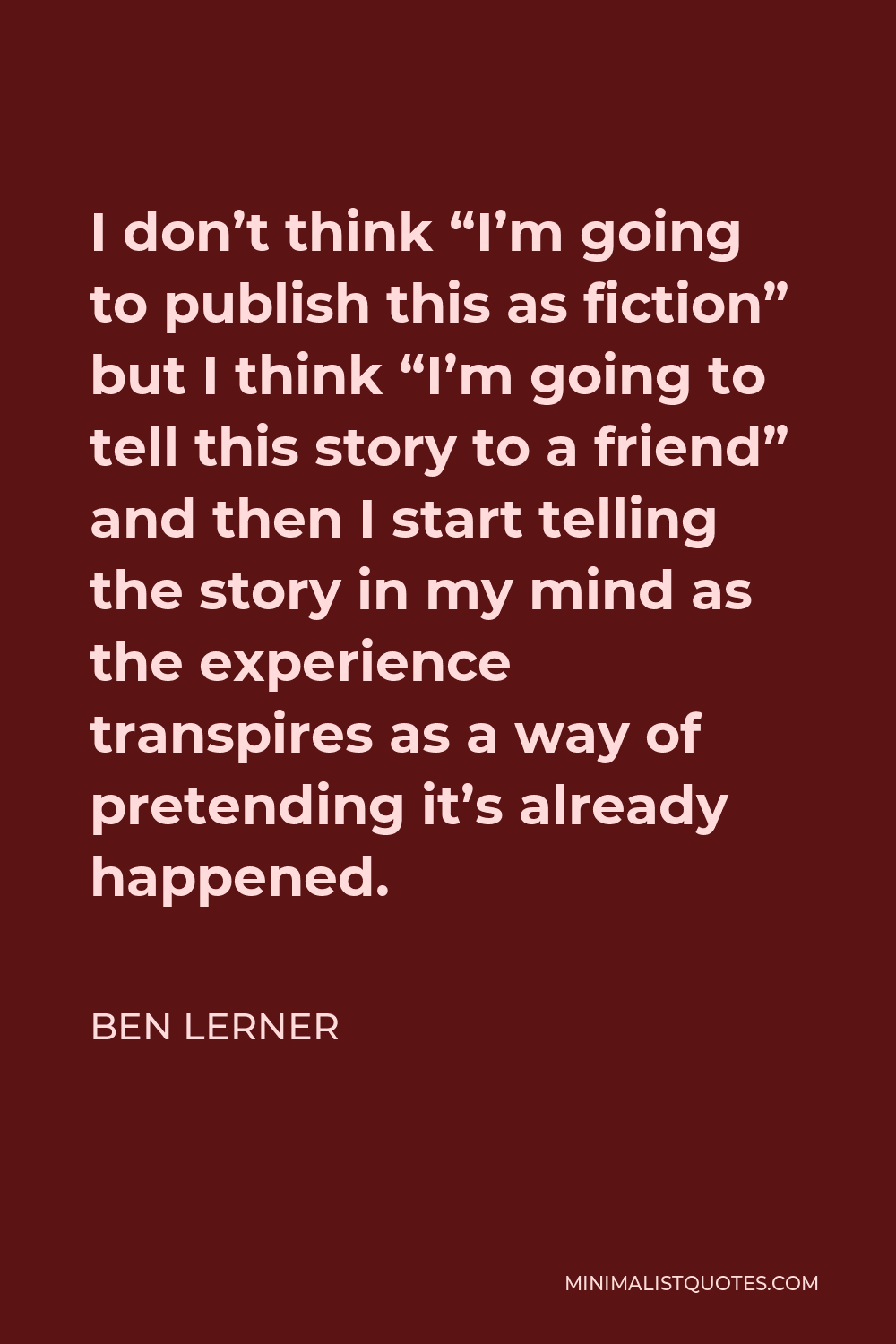Few real people appear in my two novels, actually. “Ari” appears on the edge of this book a couple of times – but on the edge, she’s never in it, even if she’s a determining force from the outside. Everybody in the first book was basically made up, if never from scratch.
BEN LERNERI don’t think “I’m going to publish this as fiction” but I think “I’m going to tell this story to a friend” and then I start telling the story in my mind as the experience transpires as a way of pretending it’s already happened.
More Ben Lerner Quotes
-






-







Henry James claim that if you want to be a novelist you should be somebody on whom nothing is lost.
BEN LERNER -







I have no interest in artists who are purely affirmative, who’ve made a commercialized fetish of the culture’s stupidity.
BEN LERNER -





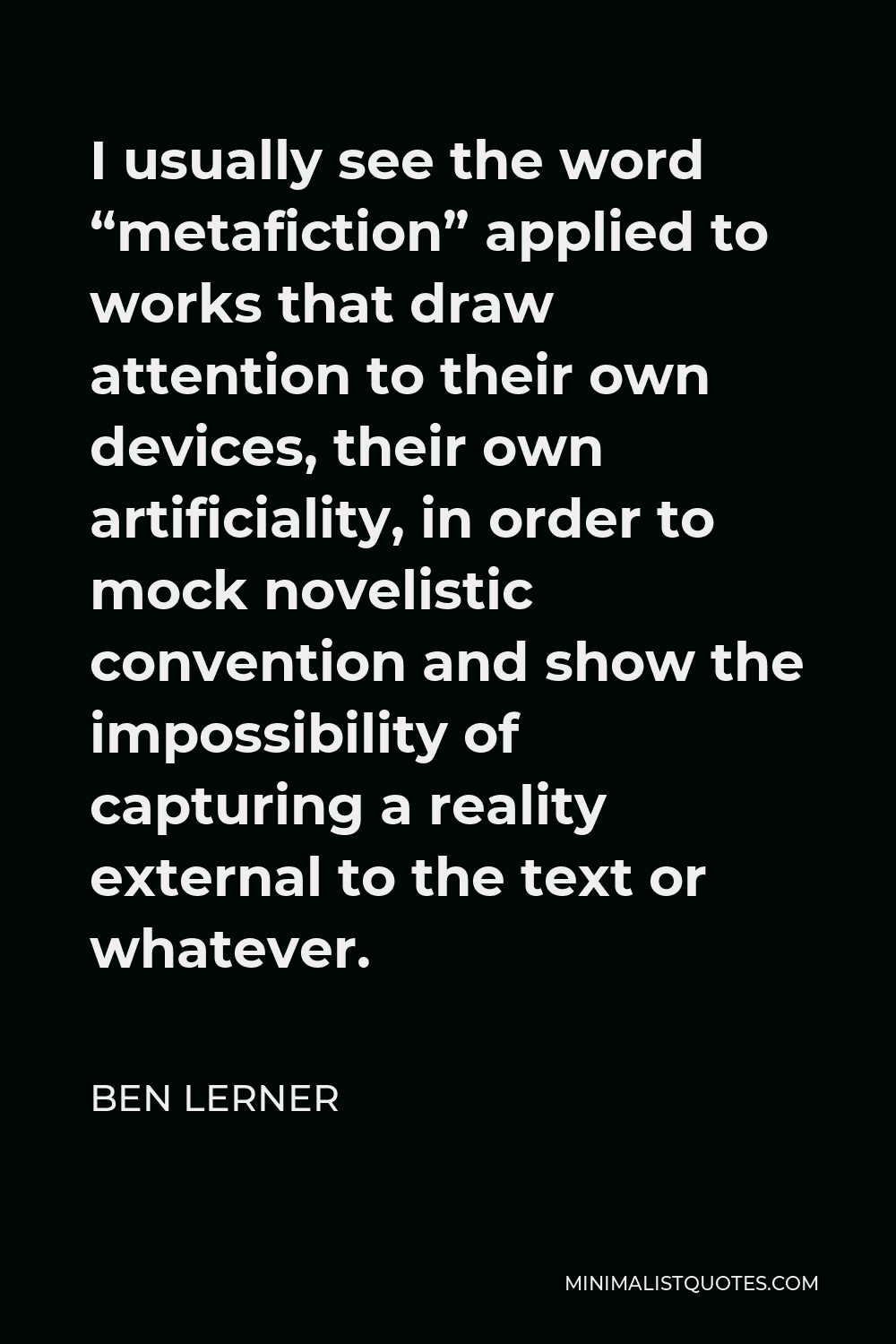
I usually see the word “metafiction” applied to works that draw attention to their own devices, their own artificiality, in order to mock novelistic convention and show the impossibility of capturing a reality external to the text or whatever.
BEN LERNER -






The story and the poem are obviously changed by being placed in the novel, so in a sense they’re no longer the works that preceded the novel.
BEN LERNER -






I’ve been building a fiction in part around the Marfa poem since my brief residency there, which has kept it from receding into the past.
BEN LERNER -






The scare quotes burn off like fog.
BEN LERNER -





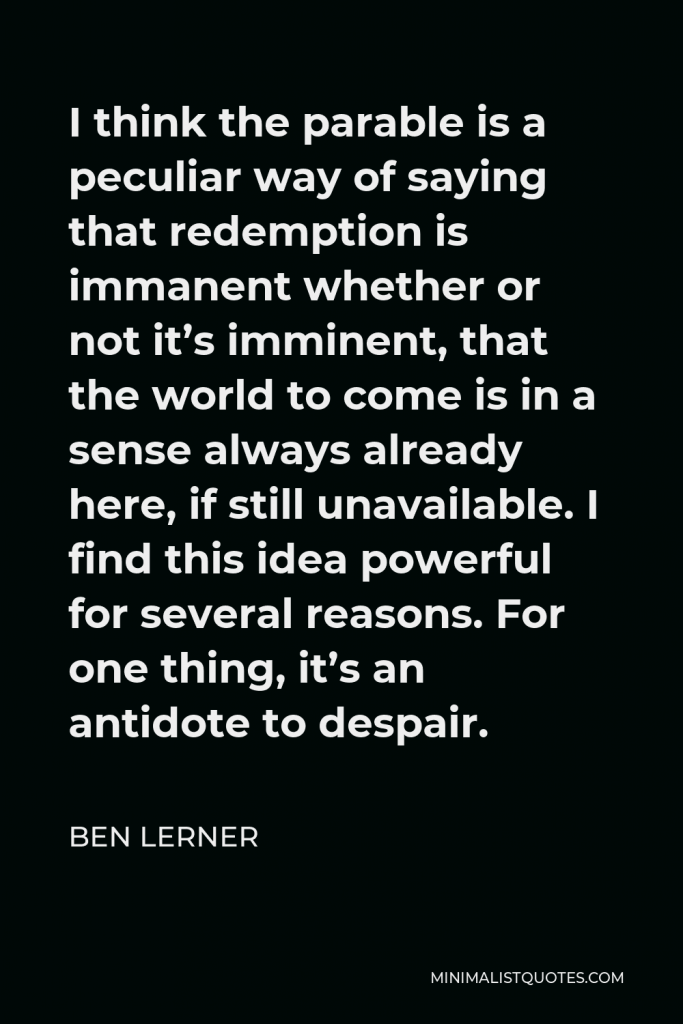

I think the parable is a peculiar way of saying that redemption is immanent whether or not it’s imminent, that the world to come is in a sense always already here, if still unavailable. I find this idea powerful for several reasons. For one thing, it’s an antidote to despair.
BEN LERNER -






I guess when I’m frightened or in pain or maybe very bored I’ve tried to hold myself together by imposing a narrative order on the experience as it happens.
BEN LERNER -






I was a violent, bipolar, compulsive liar. I was a real American.
BEN LERNER -





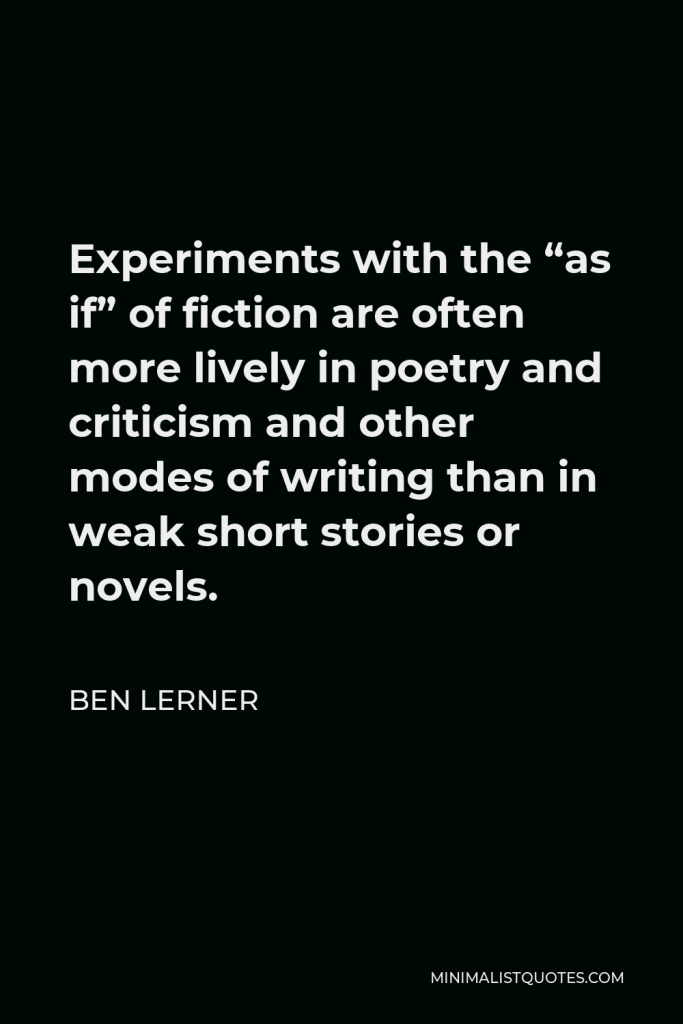

Experiments with the “as if” of fiction are often more lively in poetry and criticism and other modes of writing than in weak short stories or novels.
BEN LERNER -






Just in case God isn’t dead, our astronauts carry sidearms.
BEN LERNER -







I’m trying to be somebody on whom the experience is lost by supplanting it with its telling. I definitely do that in medical contexts, even in trivial ones.
BEN LERNER -






I like to think – knowing that it’s an enabling fiction – of those moments as fragments from a world to come, a world where price isn’t the only measure of value.
BEN LERNER -





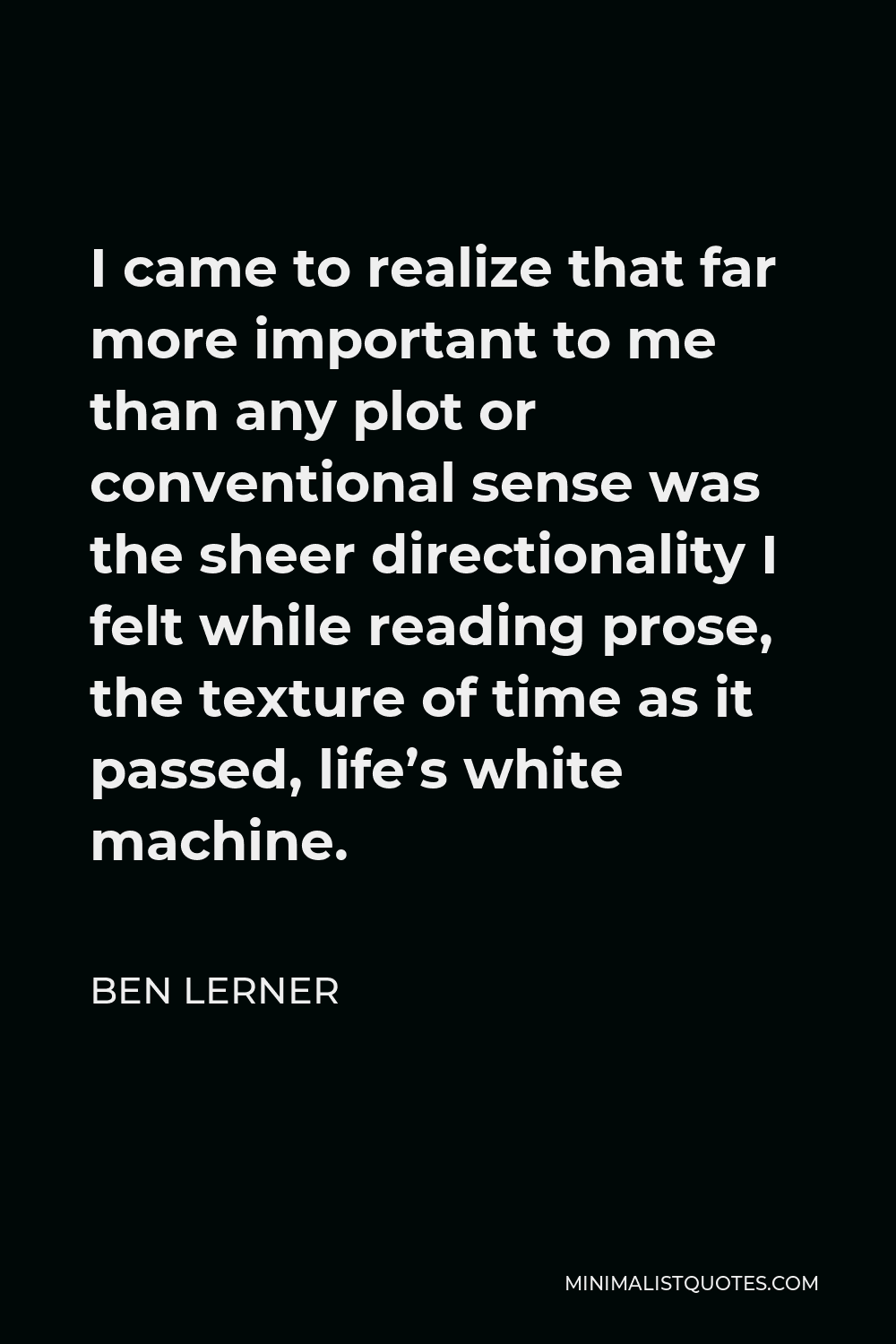
I came to realize that far more important to me than any plot or conventional sense was the sheer directionality I felt while reading prose, the texture of time as it passed, life’s white machine.
BEN LERNER -





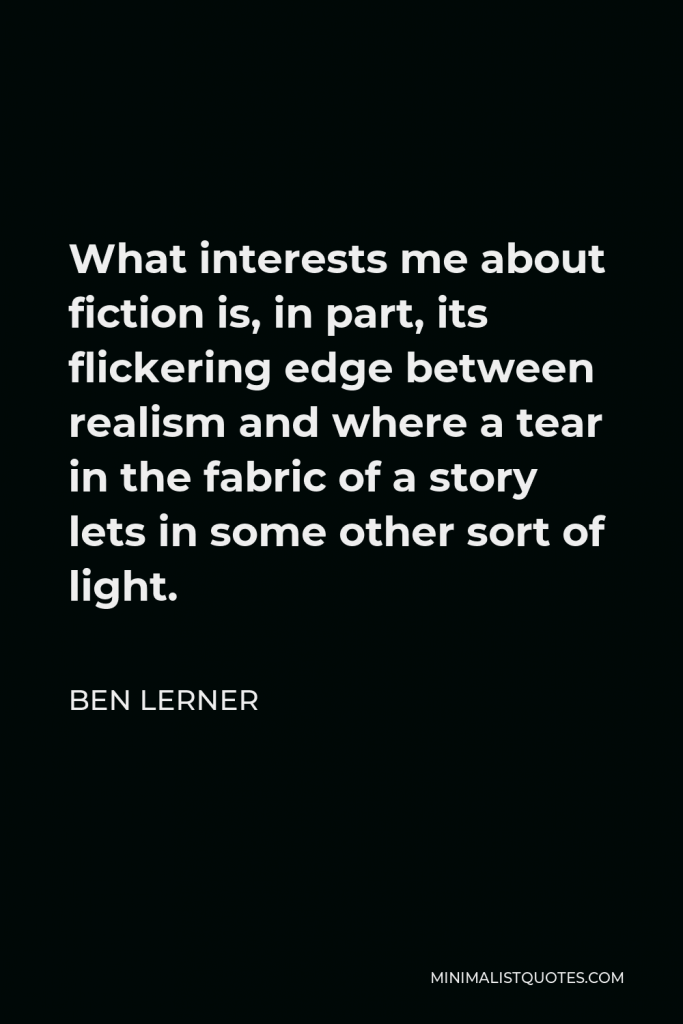

What interests me about fiction is, in part, its flickering edge between realism and where a tear in the fabric of a story lets in some other sort of light.
BEN LERNER
